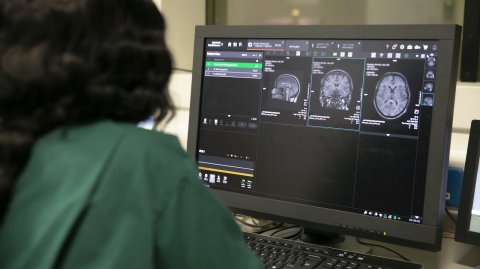How does progressive MS compare to other neurological conditions?

- Lead researcher:
- Dr Melissa Grant-Peters
- Based at:
- University of Cambridge
- MS Society funding:
- £179,399.02
- Status:
- Active
Background
Progressive MS is associated with neurodegeneration in the brain. This includes chronic inflammation, loss of brain volume and loss of nerve cells.
These features are also seen in other neurological conditions. And Dr Grant-Peters has shown that the brains of people with progressive MS share similarities on a cellular level with the brains of people with other neurological conditions, like Parkinson’s disease and Alzheimer’s disease.
About the project
In this project, Dr Grant-Peters will bring together data from studies into progressive MS, Alzheimer’s disease and Parkinson’s disease. This will include data about the differences between the types of cells that are found in the brains of people with and without neurological conditions, and how these cells are organised in the brain.
This data will give us a better understanding of how the brain responds to progressive MS – and how this is both similar to, and differs from, other neurological conditions. Dr Grant-Peters also aims to use this information to identify potential new drugs for progressive MS.
How will it help people with MS?
This work will help us to understand more about progressive MS, and the similarities and differences between MS and other neurological conditions.
This could help researchers to understand why treatments for relapsing MS aren’t always effective for people with progressive MS. And identify drugs that have been researched for Parkinson’s disease and Alzheimer’s disease that could be repurposed for people with MS.




